Why It’s Great: The Darjeeling Limited
Wes Anderson has made so many great movies, it’s inevitable that one of them would be a bit overlooked.
The Darjeeling Limited is that movie. And it’s a shame! Because it’s wonderful, and right up there with The Grand Budapest Hotel and The Royal Tenenbaums.
So. With The French Dispatch hitting inflight screens soon (can’t wait), it’s a good time to dust off this sort-of-forgotten-about gem.
Here are six reasons why The Darjeeling Limited is great.
The Cast
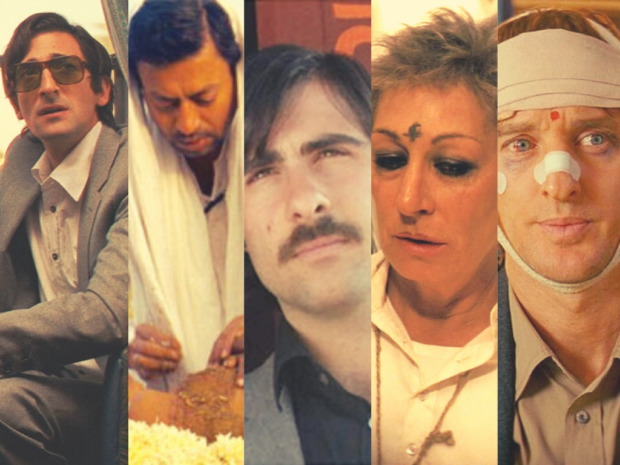
The Darjeeling Limited is about three brothers who, following their father’s death, take a train journey across India that (they hope) will provide healing, self-discovery and enlightenment.
The controlling elder brother, Francis, could be grating if played by the wrong actor: but Owen Wilson injects such sweetness and pathos into the role, that it’s hard not to like him.
Adrien Brody, meanwhile, brings a sensitivity to the icy and cynical Peter, while Jason Schartzmann plays Jack with a perfect combination of charm and world-weariness.
Anjelica Huston is as good as you’d expect as the brothers’ estranged mother, and celebrated (and sadly, recently deceased) Indian actor, Irrfan Khan, gives a standout performance as a bereaved father.
And yes, Bill Murray makes an appearance too.
As far as casting goes, it’s hard to fault the movie.
It’s a Real Tearjerker
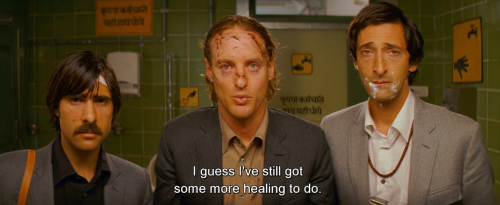
The Darjeeling Limited is one of Anderson’s most human and affecting films.
There are a number of moving moments, like the brothers’ reunion with their mother, or the death of the village boy. But the final scene is the best example (be warned – spoilers dead ahead!):
At this point, the brothers have accepted the loss of their father, and are ready to let him go. This is symbolised by how they leave their luggage behind as they jump on the departing train.
A simple metaphor, yes, but a powerful one too, and it makes for a wonderfully bittersweet conclusion.
Personally speaking, The Grand Budapest Hotel might be his most emotionally resonant movie, overall – that was something else. But Darjeeling is a close second.
India and its People
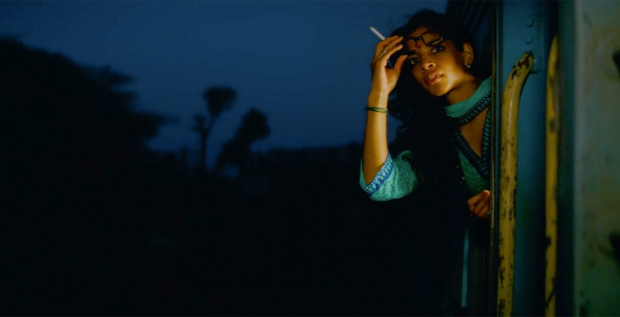
This was Wes Anderson speaking in a 2007 interview, and his affection for the country translates to the big screen.
Whether it’s a taxi ride through the crowded streets of Jodhpur, or a wide-angled shot atop the Udaipur mountains, or in the ornately decorated train, Anderson’s India is vibrant and stunning to look at.
But it’s not just the location. It’s the people, too.
From the large cast of local extras, to more prominent roles like Rita, The Chief Steward and The Father, almost every scene is teeming with interesting, and brilliantly performed, native characters.
Both of these elements, combined, create an India that’s authentic, complex and alive.
Visual Style
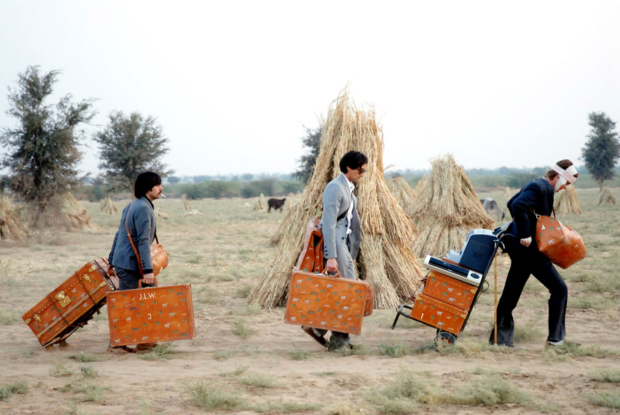
Extended tracking shots; symmetrical framing; meticulous set design; slo-mo; lavish costumes and whip pans. Just some of the stylistic signatures that have made Anderson one of Hollywood’s most distinctive directors.
All are present and correct in the movie, and they create an aesthetic that is both instantly recognisable and lovely to look at. Check out the below scene for some classic Anderson-isms:
We expect a high standard of visual loveliness from the director, and he doesn’t let us down in Darjeeling.
Brotherly Love
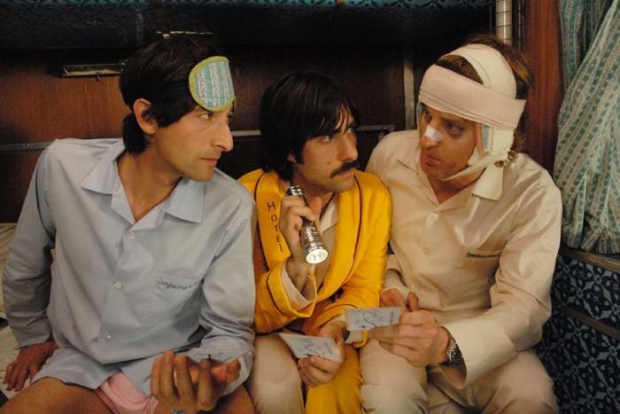
In this 2018 article, Marshall Shaffer writes how he “can’t think of a film that pinpoints the way brothers operated in a space together quite as accurately as The Darjeeling Limited“.
He’s absolutely right.
Brody, Wilson and Schartzmann mightn’t look like brothers, but they act like it. Take any given scene, and it’s all there: the bickering; the subtle jabs; the layered communication and the thrown fists.
But more importantly, and we see it more as the film progresses, is the love and affection that they have for one another.
Anderson has a gift for portraying dysfunctional and fractured families onscreen – The Royal Tenenbaums and Moonrise Kingdom are two fine examples.
But The Darjeeling Limited is where he did it best.
Humour
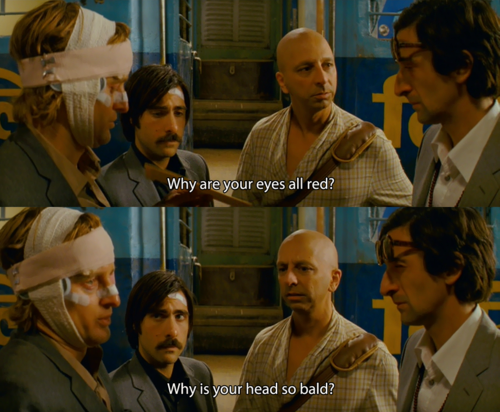
Comedy has always been an essential ingredient in Anderson’s movies, providing relief from their oftentimes sad and nostalgic themes. The Darjeeling Limited is no exception.
There are more than a few big laughs, but this is the biggest:
It’s a hilarious scene. The build-up to Francis and Peter wrestling on the ground is brilliantly done, and Jack’s line two minutes in (“I love you too, but I’m gonna mace you in the face!”) is one of my favourites.
Or how about this exchange between Peter and Jack. It’s the director at his deadpan best:
Jack: What did he say?
Peter: He said the train is lost.
Jack: How can a train be lost? It’s on rails.
Classic. How can you not love this film?
Written by Conor Regan.
At Inflight Dublin, we pride ourselves on providing the highest quality film, TV and audio content to our clients. If you’d like to learn how we can do the same for your airline, make sure to get in touch mail@inflightdublin.com
Further Reading
- “The Unpopular Opinion: The Darjeeling Limited is Wes Anderson’s Best Film” by Marshall Shaffer. Slashfilm.com.
- “Why The Darjeeling Limited is Wes Anderson’s Best Film” by Nathaniel Smith. Littlewhitelies.com.
- “The Darjeeling Limited – Film Review” by Philip French. Guardian.com.
Image Credits
- All images courtesy of 20th Century Fox. All rights reserved.

